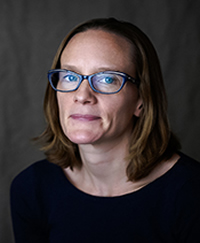Keynote Speakers
Sam Catherine Johnston, Ed.D.
 Sam Catherine Johnston, Ed.D. is a research scientist at CAST, Dr. Johnston brings 12 years of experience in peer-based learning models, distance and blended education, and program evaluation. She is the CAST Project Director for a Gates-funded Project Open Learning Initiative to integrate UDL into the design of community and technical college courses for all TAACCCT funded grantees. She was recently a research scientist on the U.S. DOE, Center for Online Learning for Students with Disabilities and is Co-PI for an NSF study on stereotype threat and its impact on inquiry science pedagogy in middle schools. Before joining CAST, Dr. Johnston was at the Center for Social Innovation where she was the curriculum lead on an National Institute of Mental Health randomized control trial on training modalities for human services professionals working with individuals with psychiatric disabilities and Project Director developing a curriculum for criminal justice and behavioral health practitioners.
Sam Catherine Johnston, Ed.D. is a research scientist at CAST, Dr. Johnston brings 12 years of experience in peer-based learning models, distance and blended education, and program evaluation. She is the CAST Project Director for a Gates-funded Project Open Learning Initiative to integrate UDL into the design of community and technical college courses for all TAACCCT funded grantees. She was recently a research scientist on the U.S. DOE, Center for Online Learning for Students with Disabilities and is Co-PI for an NSF study on stereotype threat and its impact on inquiry science pedagogy in middle schools. Before joining CAST, Dr. Johnston was at the Center for Social Innovation where she was the curriculum lead on an National Institute of Mental Health randomized control trial on training modalities for human services professionals working with individuals with psychiatric disabilities and Project Director developing a curriculum for criminal justice and behavioral health practitioners.
Sarah Williams
Sarah Williams serves as the Director of the STEPP Program, a student support program at East Carolina University designed to provide college access and ongoing support for students with learning disabilities. She also serves as Principal Investigator for the College STAR initiative, a grant-funded project focused on helping participating campuses create educational environments that are welcoming for students who have different approaches to learning. Prior to her work with STEPP and College STAR, Sarah was a part of the ECU College of Education faculty with a focus on Special Education.
Terrill Thompson
Terrill Thompson is Technology Accessibility Specialist at the University of Washington. He has worked in the accessible technology field since the early 1990's, primarily in a higher education setting. He is a co-founder of the EDUCAUSE IT Accessibility Constituent Group and served as its leader from 2007 through 2012. Terrill has consulted widely with local and state government, private industry, and K-12 and postsecondary education entities on technology access issues.
Updated December 16, 2015 by Student & Academic Services

